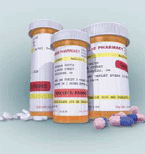 Drug and medical device manufacturers have long struggled to devise ways to get tight with physicians who can promote, recommend, prescribe, or use their products. In recent years, PhRMA and the FDA have published guidelines to rein in marketing abuses. All that effort, and the reams of adverse news stories and other publicity, seems only to have intensified the industry's efforts to continue the remuneration to doctors, albeit in a manner that might escape detection or, once discovered, provide the industry with a better cover story than was possible when the emoluments took the form of all-expenses-paid trips to Hawaii.
Drug and medical device manufacturers have long struggled to devise ways to get tight with physicians who can promote, recommend, prescribe, or use their products. In recent years, PhRMA and the FDA have published guidelines to rein in marketing abuses. All that effort, and the reams of adverse news stories and other publicity, seems only to have intensified the industry's efforts to continue the remuneration to doctors, albeit in a manner that might escape detection or, once discovered, provide the industry with a better cover story than was possible when the emoluments took the form of all-expenses-paid trips to Hawaii. Judging from an article in today's N.Y. Times ("Charities Tied to Doctors Get Drug Industry Gifts," by Reed Abelson), the latest ploy seems not to have worked exactly as planned:
The Midwest Heart Foundation, and the way it has become quietly interwoven into its doctors' professional lives, is far from unique. Around the country, doctors in private practice have set up tax-exempt charities into which drug companies and medical device makers are, with little fanfare, pouring donations — money that adds up to millions of dollars a year. And some medical experts see that as a big problem.
The charities are typically set up to engage in medical research or education, and the doctors involved defend those efforts as legitimate charitable activities that benefit the public. But because they operate mainly under the radar, the tax-exempt organizations represent what some other doctors, as well as regulators and industry consultants, say is a growing conduit for industry money. The payments, they say, can bias the treatment decisions of physicians, may lead to suspect research findings and at times may even risk running afoul of anti-kickback laws.
Federal officials are starting to take notice of such tax-exempt charities, which critics say are becoming increasingly popular as other forms of industry support to physicians — like lucrative consulting agreements that involve little actual work — have come under scrutiny from regulators and others worried about the potential conflicts.
No comments:
Post a Comment